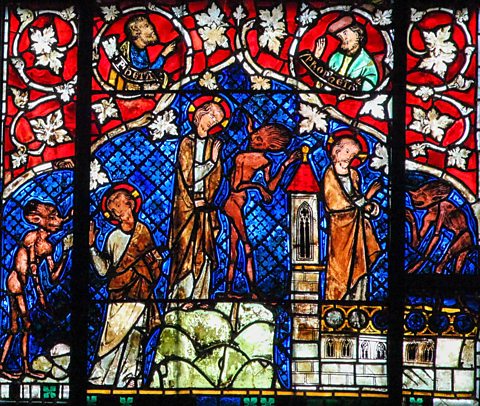Jesus is tempted (Matthew 4:1-11)
Summary
The spirit led Jesus into the desert to be tempted by the Devil. After forty days and nights without food, Jesus was hungry. The Devil tempted Jesus to turn stones into bread, to which he replied âHuman beings cannot live on bread alone, but need every word God speaks.â The second temptation was for Jesus to throw himself from the highest point of the temple and order angels to catch him. Jesus replied âDo not put the Lord your God to the test.â Finally, the Devil offered Jesus all the kingdoms of the world in return for worshipping him. Jesus replied âWorship the Lord your God and serve only him!â
The Devil left Jesus and angels came and helped him.

Understanding the text
The three temptations which Matthew records give an insight into the issues that Jesus was wrestling with during his forty days in the wilderness:
- âTell these stones to become breadâ â The first dilemma which Jesus faced was how to use his miraculous power, whether to use it for selfish reasons or to help others. Jesus denied himself the opportunity to satisfy his hunger, even though he had been fasting for forty days and nights. This shows that he is not concerned with material things but with spiritual food given by God.
- âThrow yourself downâ â Jesus was told to throw himself from the highest point of the temple. On this one occasion the Devil himself quoted scripture. Again, the challenge to Jesus was to misuse his power. But it also asked Jesus to prove that he was the Messiah and that God really cared for him. This question was an important one for Jesus to deal with because he would be faced with it again and again as people questioned his identity and authority.
- âBow down and worship meâ â This temptation tested Jesusâ devotion to God and also his desire for political power. However, Jesus showed that his idea of a Messiah was not one who had political power but one who put Godâs kingdom first.
Jesus responds to each temptation with a quotation from the Old TestamentThe first part of the Christian Bible which corresponds to the Hebrew Bible but is arranged differently. book of Deuteronomy. This shows that when Jesus is tempted and feels he is in a difficult situation, he looks to Godâs word for guidance.
As a result of the temptations, Jesus was stronger and more prepared for his ministry because he had rejected three false ways of doing his task:
- providing only for peopleâs material needs
- using his power to do miraculous tricks and win popularity
- giving in to evil in order to gain political power